As usual Crossroads Arabia is one of the more interesting blogs on the Middle East and in particular Saudi Arabia.
He caught a very interesting article that ran in the Washington Post a few days ago at his post A Jesuit in Qatar
A couple of things strike you about the post article. First the fact that a Catholic Priest is teaching what is basically a first year Theology course in Middle East Country to a diverse group from around the area a "college class of mostly Sunni and Shiite Muslims exploring with one another and with their Catholic priest professor some of the basic theological issues: the existence of God, free will, sin, prayer and Judgment Day" is something else.
As the article says it still takes some getting used to by the students.
One day early in the semester, in the middle of a discussion on the definition of revelation, one of my students, an intensely bright Muslim from Bosnia, heaved a deep sigh and blurted out, "I hope we don't get blown up for talking about this stuff." I was writing on the blackboard, with my back to the class. I laughed. When I turned around, I saw that he wasn't joking.
However the main thrust of the article is how this Priest explains that part of the problem of the United States Diplomatic Corp is there are few people of faith. Thus that creates particular problems as to the Muslim World.
A few quotes:
I had spent years discussing religious matters with smart American students in excellent schools before I was sent to the Middle East. I had found those conversations enjoyable, often challenging and usually sincere. But something was often missing, something I found hard to pin down. An Egyptian Muslim friend I met in Qatar helped me understand what that something was. Talking with Americans about faith and religion, he told me, is like having coffee with Forrest Gump: pleasant enough, but not of much substance. "They just don't have much to say because they just don't get it," he said.
"They just don't get it" is never something a teacher wants to hear. That's especially true when I think about our mission at Georgetown, where we educate many students who will become foreign service officers for the United States and other countries. One of the more important and pragmatic qualities I hope our students carry with them into those careers is a felt-in-the-bone understanding of what it is to live one's life committed to one's faith. ...........
Most professors I know nod vigorously when I suggest to them that an understanding of faith and its claims on the imagination of faithful people is essential for future diplomats. "Of course, of course," they say. "If we don't know about Islam, we will never be able to help untangle the mess in the Middle East." I usually don't have the heart to tell them that they have missed my point entirely.
The majority of Georgetown students I know are fairly knowledgeable about religion. They can talk intelligently about Christianity, Islam, Judaism, Hinduism and Buddhism. The glitch is that they talk from the perspective of anthropologists and sociologists and historians. These are valuable perspectives. But they are not enough. Of course we need to raise young people who can be smart, savvy, sophisticated participants in international affairs. What we also need are young people who can be all of those things while at the same time knowing and understanding what it is to live one's life with a commitment rooted in faith. ......
And
Recently, I had a conversation with a young woman who is about to begin her sophomore year at Georgetown. She has a passion for art history and American democracy and is serious about her Jewish faith. She hopes to work in international affairs one day. We were discussing the courses she might take this fall.
She reported that people had been telling her she really should take more economics. "What if instead of that," she said, "I took only four courses this semester and used the extra time to go with my Christian and Muslim friends to their churches and mosques? I just think that if I had a better sense of how they prayed and what they mean when they use the word 'God,' I'd be able to have much better conversations with them about the situation in the Middle East."
What do you say to that, except "Amen"? And, "Have you thought of taking the foreign service exam after you graduate?"
I think there is a lot here to contemplate. I also think it shows that despite the huge efforts of the Church to remind people that Vocation is more than just the Priesthood and Religious life that this is a concrete example of perhaps that has not set in. Though to be fair how many Devout and Catholics and Christian or people can attend the Pricey GeorgeTown and their Diplomatic school
Monday, July 28, 2008
A Jesuit in Qatar Hits On the Problem of American Diplomacy and the Islamic World
Posted by
James H
at
7/28/2008 10:55:00 AM
![]()
Labels: Catholic Politics, Islam, United State Catholics, WOT
Subscribe to:
Post Comments (Atom)


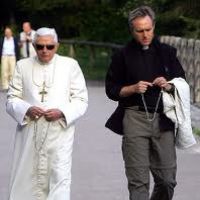

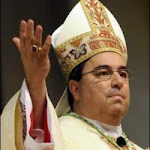




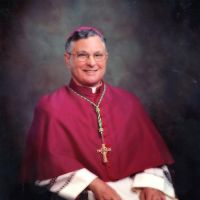
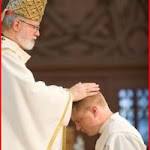

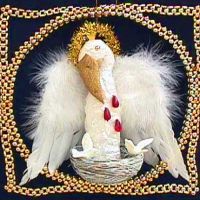
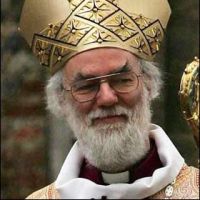
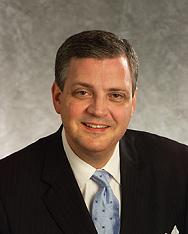
1 comment:
Father talks about the glitch. What is the glitch?
Post a Comment